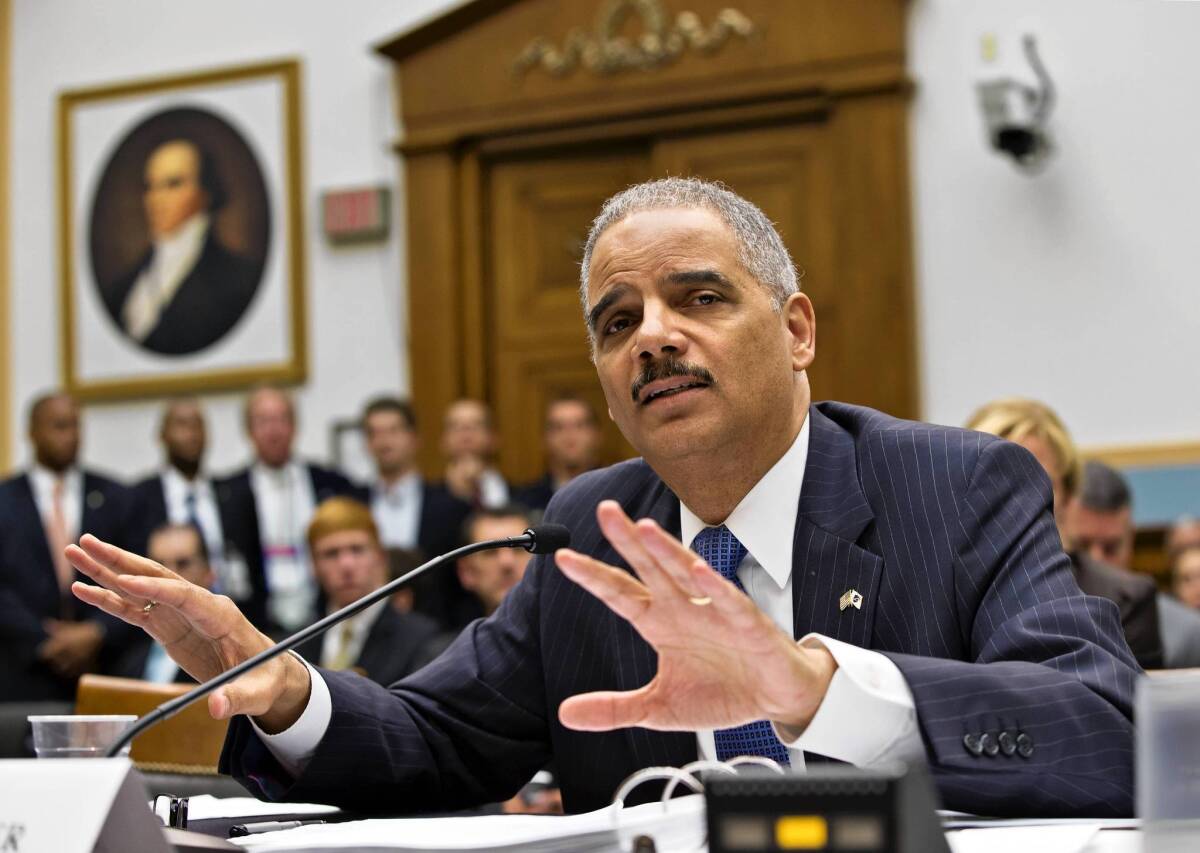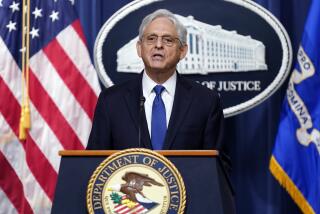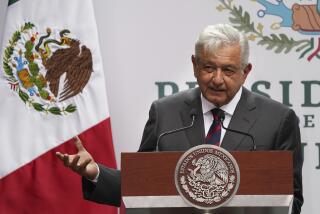Obama orders review of guidelines on investigating reporters

WASHINGTON â President Obama said Thursday he was troubled by the possibility that leak investigations may âchillâ investigative journalism and said he had asked Atty. Gen. Eric H. Holder Jr. to review Justice Department guidelines for going after reporters or their records.
âJournalists should not be at legal risk for doing their jobs. Our focus must be on those who break the law,â Obama said, referring to those who leak secret information.
The statement seemed to mark a departure for the president, who has been particularly determined to investigate those in his administration who leak national security information to reporters.
The president appeared to be responding to two recently revealed incidents in which prosecutors investigating leaks had secretly seized the phone records of reporters. In one case involving the Associated Press, the Justice Department said a special prosecutor had obtained phone records for at least 20 phone lines used by Associated Press reporters.
In a second case, a prosecutor had obtained a search warrant to seize the phone records and personal emails of James Rosen, a Fox News reporter. Moreover, the government investigator said there was probable cause to believe that Rosen had violated the Espionage Act by conspiring to reveal classified information.
âIâm troubled by the possibility that leak investigations may chill the investigative journalism that holds government accountable,â Obama said in a speech at the National Defense University at Ft. McNair in Washington. âIâve raised these issues with the attorney general, who shares my concern. So heâs agreed to review the existing Department of Justice guidelines governing investigations that involve reporters, and heâll convene a group of media organizations to hear their concerns as part of that review.â
As if to emphasize his determination to act, Obama said he had asked Holder to report back to him by July 12.
Bruce Brown, executive director of the Reporters Committee for Freedom of the Press, called Obamaâs statement âa very positive development. Itâs a step in the right direction to have the attorney general sit down with all of us and to have a dialogue.â
Press lawyers said they were most concerned about the secrecy involved in seizing the phone records and by the idea that a reporter seeking information about a national security matter could be charged as a criminal under the Espionage Act.
Under long-standing Justice Department guidelines, investigators âmust first attempt negotiations with the mediaâ before seeking an order to obtain phone records from a journalist, except when doing so would violate the integrity of the investigation. In both recent cases, the prosecutors did not notify the news organization in advance of seizing the records.
âWe will be asking for a truly robust process for notifying the media when its records are sought,â Brown said.
Some free-press advocates were even more surprised when the affidavit in the Rosen case said the reporter could be guilty of âaiding and abettingâ the crime of espionage.
âThat goes to the one of the most fundamental questions of 1st Amendment law,â Brown said. âWe want an acknowledgment that you are not committing a crime as a reporter when you are asking for information.â
It is not clear what Obama knew about the seizing of the reportersâ records.
Obama has said the government needs to take strong steps to punish those who break the law by revealing national security information that they had pledged to keep secret. And to try to trace leaks, his administration has conducted a series of intense investigations of journalists who helped reveal the secrets.
But in recent cases, including one involving the Associated Press story that reported on how the CIA thwarted a plot to bomb an airliner, Holder recused himself and turned over the investigation to the U.S. attorneys in Washington and Baltimore.
Holder issued a statement saying he would review the guidelines for investigations involving the press and would âconsult a diverse and representative group of media organizations.â
More to Read
Sign up for Essential California
The most important California stories and recommendations in your inbox every morning.
You may occasionally receive promotional content from the Los Angeles Times.











